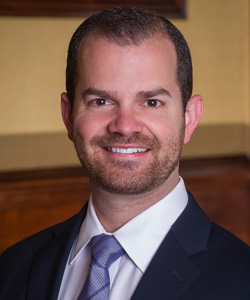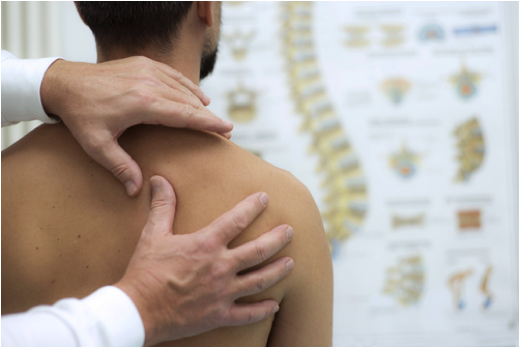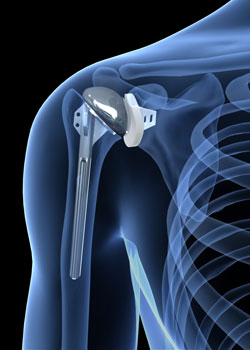Shoulder Specialists at MidAmerica Orthopaedics


Stiffness, pain, and injury to the shoulder can severely impact one’s ability to lead their life without hassle. Whether the shoulder was recently injured or the issue has been building over time, the effect on everyday activities can be acutely noticeable when unable to perform tasks like lifting or carrying objects.
If your shoulder has been giving you a hard time, the first order of business is to rest and try at-home treatments. The next step? See an orthopaedic shoulder specialist.
Shoulder specialists have trained extensively in the treatment of the complex system that forms the shoulder muscle. A visit to a shoulder specialist will help you in preventing further injury to your shoulder and get back to a quality of life that allows you to do the things you enjoy most.
The fellowship-trained physicians at MidAmerica’s Total Joint Clinic and Hand to Shoulder Clinic include some of the countries top shoulder specialists. Dr. Adam F. Meisel, MD specializes in sports medicine, arthroscopy and comprehensive shoulder reconstruction.
While Dr. Meisel has a strong background in sports medicine, he and the team of shoulder specialists at MidAmerica treat patients from all backgrounds.
Dr. Meisel has stayed heavily involved in research, publishing his findings and is always looking for the next in cutting edge innovations that he can use to improve the lives of his patients.
When to See a Specialist
If you’ve been experiencing shoulder issues, you may be asking yourself, “When do I need to see a shoulder specialist?” The short answer: sooner is always better than later. Below is a list of scenarios for when it might be in your best interest to see a shoulder specialist:
- If your pain has lasted for several weeks.
- If your pain isnt being managed by at home treatments such as pain medications, stretching, or icing.
- If you’ve been formally diagnosed with an injury from your primary care physician.

Common Shoulder Injuries
The first step when seeing a shoulder specialist at MidAmerica is diagnosis. Common shoulder injuries include:
- Rotator Cuff Tear
- Shoulder Arthritis (including osteoarthritis, rheumatoid arthritis, and post-traumatic arthritis)
- Tendon Injury
- Dislocation
Treatment
Once diagnosed, your team of shoulder specialists at MidAmerica will determine the best approach to treatment. Possible treatment methods may include:
Non-Surgical
Your specialist will likely recommend starting with a non-surgical approach, which might include:
- Corticosteroid injections to help reduce inflammation in the joint that causes pain.
- Physical Therapy to strengthen the shoulder and teach athletes to avoid further damage from their sport. Your physical therapist may include some gentle resistance exercises as well to increase blood flow to the shoulder and help promote healing.
If your shoulder is not responding sufficiently to non-surgical treatments, a shoulder replacement specialist will determine if you are a candidate for surgical treatment, and if so, what the best surgical approach is for you.
 Surgical
Surgical
There are several types of surgeries to treat a damaged shoulder. Your MidAmerica shoulder replacement specialist will determine which surgery best suits your needs. Surgeries performed by shoulder replacement specialists include:
Rotator Cuff Repair: This surgery involves the repair of the complex network of muscles and tendons that hold the shoulder joint in place and aid the joint in movement.
Shoulder Arthroplasty: Also referred to as total shoulder replacement, this surgery involves the complete replacement of the bones making up the shoulder joint.
Why MidAmerica?
The shoulder specialists at MidAmerica are recognized experts in the field of shoulder joint treatment and reconstructive surgery, but don’t take our word for it.
At MidAmerica, we aim to provide the highest quality care marked by courtesy, respect and integrity. To make an appointment at our Total Joint Clinic or Hand to Shoulder Clinic, or to learn more about MidAmerica’s Palos Hills and Mokena clinics and the different treatment options available to you, call (708) 237-7200. Most insurance plans are accepted.

